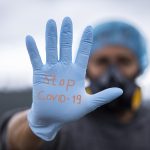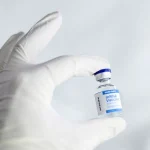Jutarnji List reports that in the last 24 hours, 72 new COVID-19 cases were recorded, and the number of active cases in Croatia today is 2111.
Among them, 792 patients are in hospital, of which 68 are on a ventilator.
20 people died. The average age of the deceased is 76 years. 166,146 doses of vaccine had been used, and 108,311 people were vaccinated. For 57,835 people, the vaccination was completed.
HZJZ director Krunoslav Capak reported on the 14-day incidence per 100,000 inhabitants.
“We have 72 new cases. A week ago, there were 68 new cases, and the week before, 71 new cases. The mild beginning of the plateau of an equal number of patients or a very slight increase continues. We currently have two percent more than the week before. The current incidence for the Republic of Croatia in 14 days is 111.2. The lowest incidence is in the County of Istria and the highest in Dubrovnik-Neretva County. In terms of incidence, Croatia ranks 3rd in the EU. Only Denmark and Finland have the lowest, and the Czech Republic has the highest in the EU: 1109.7. The total mortality rate per million inhabitants is 1331.9, and we are ranked 19th out of 27 EU countries. The share of positives in those tested today is 3.2 and for the last 14 days, 6.0. So far, HALMED has received 927 reports of suspected side effects, of which 822 are on the Pfizer vaccine, 48 on the Moderna, and 57 on the AstraZeneca,” Capak said.
Capak spoke about the shipments of vaccines expected in Croatia.
“This week, we need to receive 23,400 doses of Pfizer, 16,800 Moderna, and 52,000 AstraZeneca. Moderna has announced that it will deliver those 16,800 doses on February 25. Of all the others, we have announcements for March, only from Moderna. We do not have dates, but they announced about 55,000 doses during March. We should receive another 508,630 doses of vaccine by the end of March.”
Minister of Health Vili Beroš spoke about 20% fewer examinations and procedures in hospitals this year.
“It ranges from 19-28%. We learned in this spring wave and adjusted the health care system. Everywhere in the world, health capacities are focused on solving Covid problems. We had to operate one entire facility to provide COVID-19 protection to positive patients and relieve all other health facilities. I think we succeeded in that. We appeal to health institutions and patients to respond to preventive examinations. This is of fundamental importance. Many avoid these examinations for fear of getting infected in hospitals, which is not good. It is important to have regular preventive check-ups. And the general population does not respond in the desired number to preventive examinations. We are thinking about it, and we have adjusted the health care system so that as many institutions as possible provide other health care,” he said.
Capak commented on allegations that those receiving the AstraZeneca vaccine will not have to wear masks afterward.
“The type of immunity that protects our mucous membrane from the virus, so that it cannot live on it, is a different type of immunity than the one that develops after vaccination. AstraZeneca was the first to publish a study, and their vaccine also protects against virus transmission. And if the vaccine develops immunity, we weren’t sure if that person could receive the virus on the mucosa and transmit it. That’s why we recommended wearing a mask even after vaccination. Whether other vaccine manufacturers will conduct such studies, we do not currently know. We wouldn’t tell anyone now not to wear a mask; everyone should wear a mask. Until the transmission of the virus and the number is significantly reduced, it is recommended for everyone to wear masks,” said Capak.
Božinović commented on the possibility of easing measures from March 1.
“Talks have already begun this week. It all depends on the epidemiological situation, which is good despite these particular increases. The Republic of Croatia is at the top of the countries when it comes to low incidence. We will talk to the ministers. Our goal is the same, to normalize life as much as possible, to start as many economic activities as possible. Certainly, on March 1, we will not open everything as before the epidemic, but if these trends continue, the possibility of certain concessions certainly exists. I wouldn’t want to be more specific here now. We monitor the situation locally as well. When we talk about the counties’ demands, that decision is always a decision of the National Headquarters. We are not against initiatives, but for each specific initiative from the county level, the decision will be made by the National Headquarters.”
Capak commented on the slight increase 4 days in a row compared to the week before.
“Four days is not enough to talk about the trend. This is a slight increase from the figure a week ago. Now we can think that it is some oscillation, or we can say that it is the stagnation of the fall that we had so that the plateau has leveled off and the numbers are rising. We will see this over the next few days; we can hope it is a slight oscillation after which the numbers will fall.”
Capak commented on the start of mass vaccination in Zagreb.
“I don’t know about any problems. From the beginning, the possibility of getting vaccinated in organizations or at checkpoints has been included. Some have reached the stage of using checkpoints. In Zagreb, the transition to the second phase was a bit late, and now we got a little more vaccine, and the first phase is over. HZJZ has decided to make vaccination actions at checkpoints. Tomorrow we will vaccinate in Mihaljevac and the City of Zagreb in NZJZ Andrija Štampar. Patients from the list of health centers will come; 60 patients have been ordered every half hour. We estimate that we will vaccinate 900-1000 people.”
Journalists asked the Headquarters about the tourist season and testing.
“It was discussed that those who return to their countries should be allowed to do PCR in Croatia to cross the border. We will try to organize it again this year during the season, and there is still time until then. Whether it will be at the airport or somewhere else remains to be seen. We think we will then have enough free capacity for PCR tests. There is still no EU country that recognizes rapid antigen tests for crossing the border, “Capak said.
Božinović continued.
“Numerous conversations are taking place on this, at all levels. There will be a European Council meeting soon. The Headquarters is constantly in communication with the Ministry, and we have planned meetings on this topic. This is just one of the issues we will discuss.”
Reporters asked Božinović about the possible concessions on March 1.
“We are probably one of the most open EU countries, and the fact is that there is not much we talk about yet. Of course, when we talk about restrictions, some relate to some activities that are already open and take place under certain circumstances. I think it is becoming clear to everyone that our model from day one was that we need to be rational, put everything in the context of the overall epidemiological situation to function as much as possible, and not make decisions that we will soon change. We are all affected in different ways, and we all suffer because of it. Solidarity could and should now be increasingly oriented towards becoming aware of the risks and problems that the epidemic brings to certain sections of the population. The fact is that the most at risk are the elderly, the chronically ill, and they are certainly not the ones looking for measures to be eased. When they give in, they are in the group of those most at risk. That’s why everyone needs to see what they can do to protect the most vulnerable. They need to take care of themselves, adhere to measures, and insist that everyone who comes close to them, especially younger family members, adheres to the measures. I want to say that different groups need to think for themselves about the epidemic risks. If we achieve a kind of understanding, there will be less and less need to impose something as behavior. The open-close approach is slowly being exhausted.”
To read more about COVID-19 in Croatia, follow TCN’s dedicated page.











